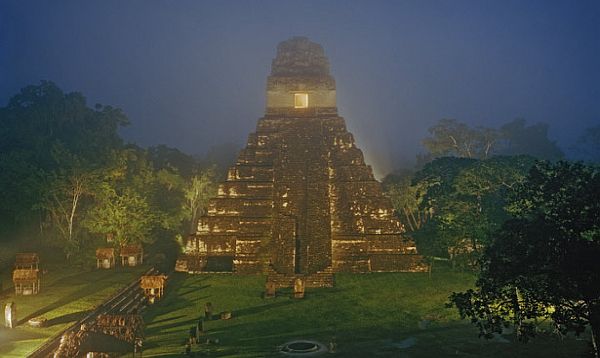Puerto Vallarta, Mexico - The Mexican government expects 52 million tourists to visit the five states corresponding to the so-called Maya World over the next 11 months for the start of a new cosmic cycle in the Maya calendar.
The tourism office said in a December 2011 communique that the visitors will spend about 270 million pesos ($19.5 million USD) in the southeastern states of Campeche, Chiapas, Tabasco, Yucatan and Quintana Roo.
On December 21, 2012, the Mayan calendar will come to the end of its current cycle, and thus Wednesday, December 21, 2011 marked the start of the countdown of the last year in that culture’s long-term solar calendar.
According to the Maya solar calendar, this year will be the last year in a cycle of 5,125 years – beginning in 3114 B.C. – and according to scientific evidence found in Maya stelas, codexes and other sources it presages "a change of epoch" for humanity.
The Maya created a calendar with a 400-year base period, each of which was called a "baktune," and each era is comprised of 13 cycles of 400 years, totaling 5,125 years.
"The Maya cosmology has sparked the interest of tourists and students of the matter worldwide, something that will be an important element of tourist promotion," said the tourism office.
Some people think that the cyclical change in the calendar will mean the end of the world, a belief that has raised a certain amount of anxiety surrounding the date.
At a gathering of scholars late last year, Epigraphist Sven Gronemeyer of Australia’s La Trobe University said that the inscription which gave rise to the "end of the world" talk merely refers to the end of one cycle of time and the start of another.


